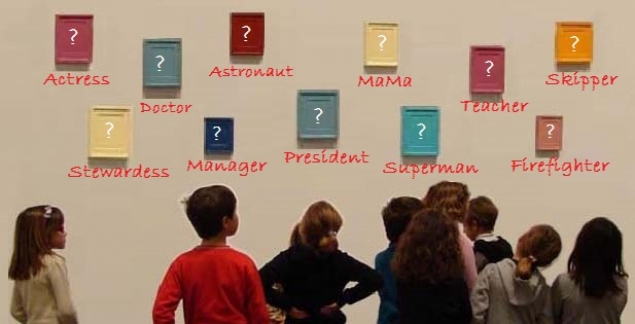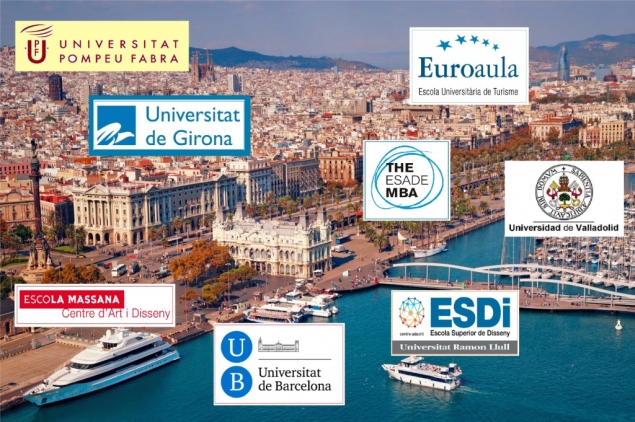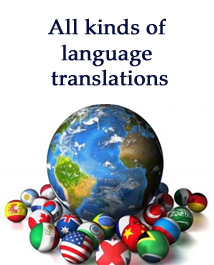Studying in Catalonia
There are things, that change as time passes: rules and bans, our concept of wealth and of life quality and what we consider our vital space. Nowadays it sometimes happens that people remain without dwelling, or lost business and they decide not to have kids. But once you have them, you must give your kids good education: first of all, so that they would be able to live in the society and, second, if all goes well, that they would flourish. But whether they are going to become good professionals and kind people or cunning “business sharks ” – this is a personal choice of them. Anyway, to give good education to kids is a part of life, like a tetanus vaccine or technical revision of a car. So let’s see what can be done when you wish to give them decent education in Spain.
Here is a brief description of our educational system. First of all we have so-called children’s education level, divided into two cycles: the first one lasts from 0 till 3 years old and the second cycle – from 3 up to 6 y.o. In the first case the state does not take any obligation to take care of it, so there are almost no vacant places in public kindergardens. The working parents have to pay a fortune in order to find where “to park” their kids. Public school starts with the second cycle of children’s education. Then the primary education comes, that lasts till a kid is 12 years old. After next four years of Compulsory Secondary Education (ESO-in Spanish/Catalan) a pupil will be 16 years old. As I intuitively feel, that my readers are mainly foreigners, I would like to underline, that it is till this moment (16 y.o.) that a foreign pupil can easily join both Catalan and Spanish educational system without any bureaucratic obstacles. But later on a foreign student would have to confirm his academic knowledge level, obtained in the country of origin.
On finishing ESO a pupil has to choose his or her future way: either to continue secondary education, especially if the aim is to enter a university or to take professional training or specialized education of sport specialities, art plastics and design, music and dancing. Only when the secondary education is over and a pupil is 18 y.o., a key moment of his or her life will arrive: the tests for entering a university; fear of selection. The tests are series of exams (they last for two days), for which a school-leaver is going to get the marks, which will enable him/her – or not! – to apply to a certain faculty of a certain university. I should note, that these tests are compulsory for everyone including foreigners. In this case the tests can be taken in the majority of consulates and embassies of Spain. Moreover, there are certain institutions in Barcelona, where they prepare pupils for successful passing of these exams.
As it has been mentioned before, there are things that change. Some of them change for the best: during last 40 years the educational level of Catalonia has passed a period of national-catholic and franquist doctrine, when Spanish was the only language and when illiteracy used to be a usual thing. Nowadays Spanish/Catalan educational level is average among other countries of Western Europe.
At present time, a list of Spanish universities is headed by three Catalan ones: University of Pompeu Fabra, University of Barcelona and Autonomous University of Barcelona. All three of them leave Navarra University and two universities of Madrid behind. Three above mentioned Catalan universities together with the University Rovira i Virgili of Tarragona and Lleida University appear in the list of “Top 400 world universities” according to the newspaper “The Times”. Catalan business-schools are even more world prestigious: for example, schools ESADE and IESE occupy the fifth and the sixth places in Europe according to the list of “The Financial Times”.
Medical faculties of Barcelona universities together with University departments of Hospital Clinic of University of Barcelona (UB), Hospital de Sant Pau of Autonomous University of Barcelona (UAB) and Hospital del Mar (Pompeu Fabra) are world pioneers in such spheres as transplantation and ophthalmology. Chemical and pharmaceutical departments of Barcelona University prepare specialists for the most powerful pharmaceutical industry of Catalonia. The Physical faculty of Autonomous University of Barcelona has at its disposal one of the fewest in the world linear particles accelerator.
There are also good examples among sport specialities: Catalan sportsmen have already won so many titles, awards and championships per head, that American, Russian and Chinese sportsmen would very much like to do the same! Here is a big merit of the National Institute of Physical Education as well as of Sport Achievements Centre (el Centre d’Alt Rendiment Esportiu). Of course, one should mention the school of “Barça” football club (Messi, Xavi, Iniesta and others used to be its pupils). But it is impossible to register there: it is the school that selects pupils.
If you, dear reader, are planning to study at some Catalan university, you should know that in Catalonia, as well as in the majority of other countries, a passmark, that you will need for entering a determined faculty, depends both on the law of demand and offer and on the myths about professions, but not on the teaching level quality. For example, Catalan journalists are quite mediocre and poorly paid, but Hollywood movies had created such myths about this profession, resulting in queues and fuss for entering the faculty of Information Sciences, that one had to get 9 points of 10 in order to enter Autonomous University of Barcelona. The same happened with Medicine and Law faculties. Meanwhile, you practically do not have to compete in order to join the prestigious brotherhood of historians and archaeologists.
If our reader is a parent, looking for a calm, reliable country with healthy climate, hospitable inhabitants, good teachers and reasonable prices, he or she should know, that there are colleges, boarding schools, etc. both in Barcelona and in its suburbs (Tiana, La Garriga), where you can trust your kid’s education into reliable hands.
If you settle down in Catalonia, you’ll also be able to find schools for your kids to study at in their mother tongue. Foreign students can study in the universities of Catalonia in English and receive a diploma in English and Spanish that would meet educational standards in Europe and other English-speaking countries.
In any case you can clear up any doubt concerning the best and the most suitable (in each individual case) schools, boarding schools, universities as well as entering conditions (languages, prices, administrative questions) by addressing the competent persons of the present site www.catalonialand.com
Xavier Cristòfol







Add new comment